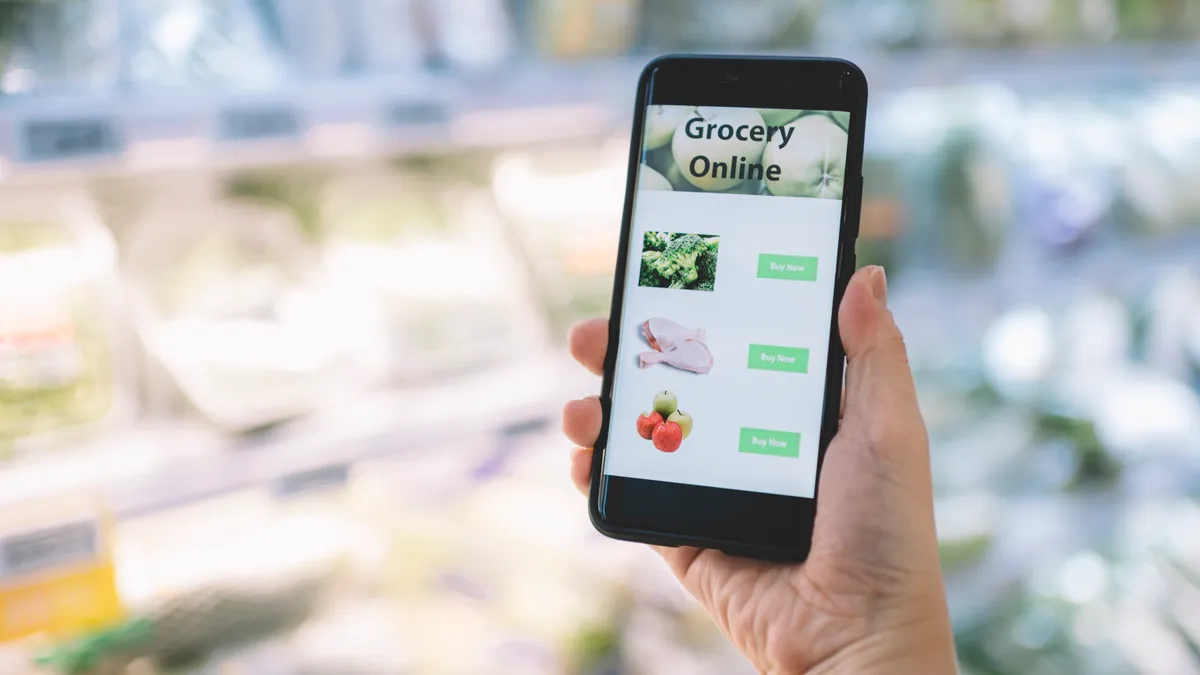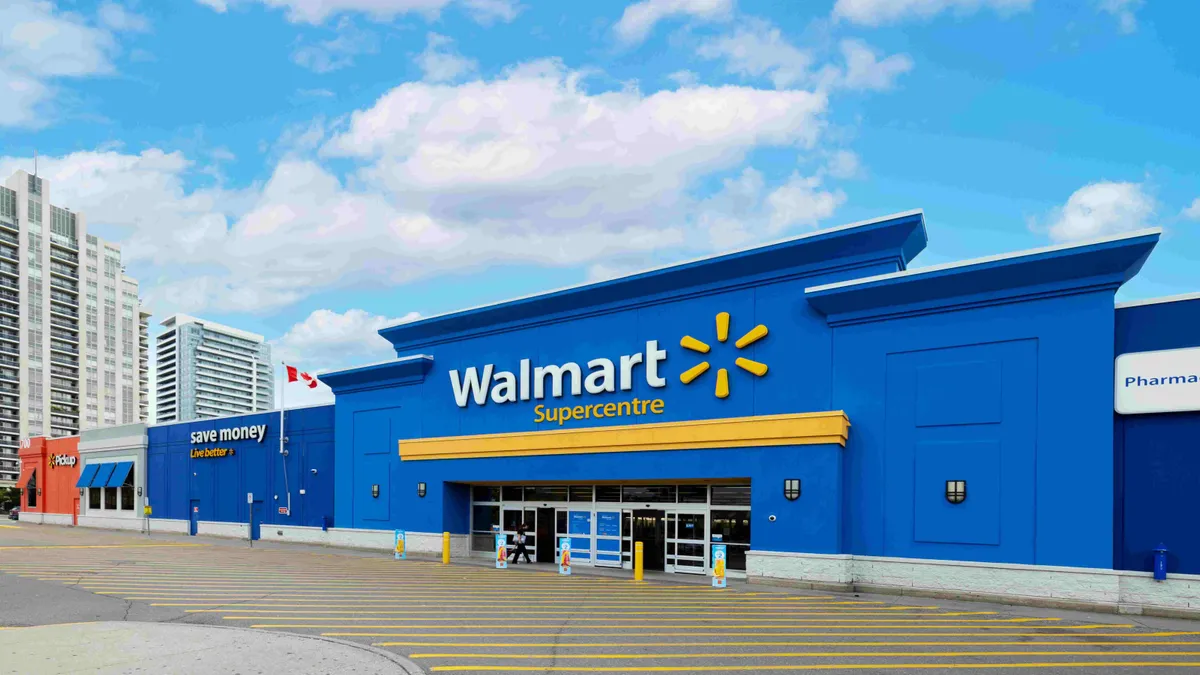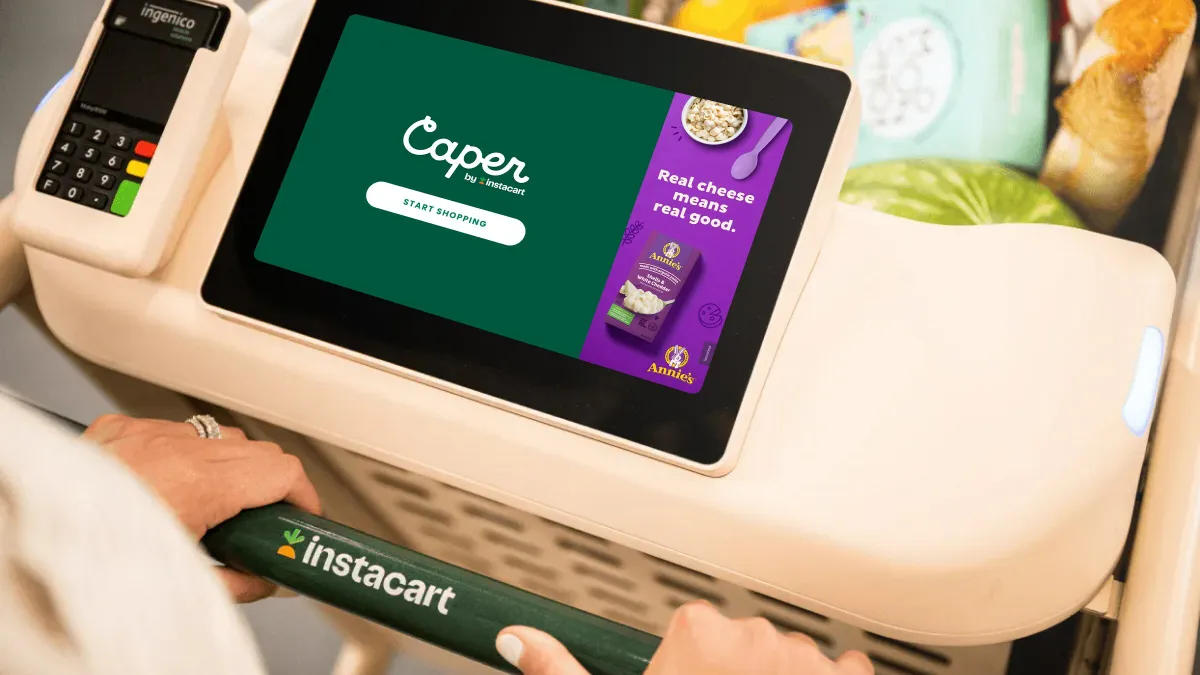True to its model, ultrafast delivery is speeding into markets across the globe, driven by the bet that an increasingly digital-savvy shopper base now wants their groceries and other goods to come faster.
The latest entrant in the U.S. market is Jokr, a startup that’s launched 15-minute delivery in a few Latin American markets and on Thursday makes its official U.S. debut in New York City.
Started by veterans from Delivery Hero, the global food delivery firm that operates in 50 countries, Jokr now counts talent from companies like Walmart, Uber and Softbank among its top ranks as it seeks to establish itself in an increasingly crowded U.S. space that now includes Gorillas, Gopuff, Fridge No More and likely others, if global expansion trends up to this point continue.
One of those execs is Zachary Dennett, a former e-commerce vice president with Walmart who was one of the earliest employees of Jet.com and is now overseeing Jokr’s U.S. launch. Having worked for a top online grocer and as a consultant for grocers before that, he sees the challenges as well as the white space for instant delivery.
"Fifteen-minute delivery changes the way you shop," Dennett said.
Jokr began testing its service with friends and family several weeks ago in New York’s Tribeca neighborhood. At launch, it will offer 1,500 products from eight micro-warehouses, each of which is manned by a team of pickers that hand orders off to delivery employees driving electric scooters or bikes. There are no order minimums or delivery fees.
Service will initially be available in Manhattan below 35th Street, as well as in a few neighborhoods in Queens, including Jackson Heights and Long Island City, as well as in the Brooklyn neighborhood of Williamsburg and will expand to additional neighborhoods in the coming months. The company also plans to launch service in Boston very soon, and expand to four additional cities by the end of the year.
Dennett spoke to Grocery Dive about Jokr’s business model, the opportunity in ultrafast delivery and how he sees the frothy industry evolving.
This interview has been edited for clarity and brevity.
GROCERY DIVE: What made you decide to jump from Walmart to an instant delivery company?
ZACHARY DENNETT: Two key things got me excited enough about Jokr to leave a really good job at Walmart. A lot of the global team has worked together at a couple of previous jobs, including Delivery Hero, and they really know the last- mile delivery space. Number two, I am incredibly excited about this move to instant commerce. When I look at the arch of retail, what I see is this continuing march toward higher convenience, and every retailer that has been able to figure out a way to serve a customer in a way that's more convenient to them, with economics that work for the customer, has been richly rewarded.
This is a business model where we can actually deliver to customers in 15 minutes in an economically sustainable way. Our riders often come back to the hub with smiles on their face, because customers told them, “Wow, how did you get here so fast?” That's powerful.
Does 15-minute delivery really make that much of a difference to consumers?
DENNETT: With 1- or 2-hour delivery, the consumer is still planning in advance. That’s not a customer-centric number — it’s the fastest that the mainline grocers are able to do it with their existing infrastructure. What we've seen as we've launched in other countries, and what we're starting to see in our early testing in New York, is that 15-minute delivery changes the way you shop. Customers first try us out because they forgot an ingredient. Then they use us the next night for all their dinner ingredients. And then your mindset changes. Suddenly, you completely change the way you plan meals for the week. Rather than planning out dinners, you decide what you want to cook right before you start cooking it. That's a very different shopping mentality. It completely turns the stock-up trip on its head.
Why not have a delivery fee or order minimum? Not having those seem to make the economics of the business difficult.
DENNETT: You’re right that the economics would work better if we charged a large delivery fee and we made customers buy a lot. But we're building the business for the customers, and then we need to solve for the economics. And sure, that means that once in a while, we're going to have a customer who buys a single apple, or maybe a customer who forgot a single ingredient. But most of the time, once customers open the app, they realize there are other things they need in their kitchen.
In a theoretical sense, it's a big risk, and of course we can't run our business if all of our orders are 50 cents. But we're not seeing that happening. What we're seeing is that the distribution and the average [purchase] are making us very comfortable.
What’s your average order value? Any other numbers you can share at this point from your testing period or global sales?
DENNETT: We're not sharing those numbers yet. I can tell you that we're quite pleased so far.
How do you build the basket when the model accommodates such small purchases?
DENNETT: We don't actually have the same need to get huge order sizes to make our economics work. We're able to make our economics work with density and frequency. If a mom on the northwest corner of the delivery area is placing a $50 dinner order and two other people on the southeast corner each decide they forgot an ingredient, we can send one rider to do all of those deliveries. As a result, our delivery costs end up being pretty good. What we need to do is make sure we have a great assortment.
How does Jokr determine the 1,500 products each dark store carries?
DENNETT: Our philosophy is that we will carry the fewest number of SKUs possible to meet as many customer need states as possible. We work through a lot of questions about what to stock within a square mile. Are customers brand loyal between pastas? Do they need both Barilla and De Cecco, or are they willing to substitute between the two? Do customers care particularly about the size of the pasta? Do they really need a penne and a ziti, or do most dishes basically interchange between penne and ziti? A supermarket would of course carry all of those options, but can we make our customers equally happy with significantly fewer choices?
We have these built-in experiments that we can do. If we’re trying to decide between two SKUs, in one hub I can put both of them, in another I put SKU A and in another I put SKU B. I see what sells for the week, then swap it. The data science team crunches it all together and they might tell us customers are perfectly willing to substitute from SKU A to SKU B — choose the best price.
That means then that we're now starting to shop on behalf of the customer, and our merchants can go to two different manufacturers and say, “We're only going to carry one of you. Our data shows that customers are relatively indifferent and also price sensitive, so which of you wants to lean in and make sure that we can give it to our customers at a great price?"
Your pickers and delivery drivers are hourly employees. How do you make sure your labor costs don’t run too high?
DENNETT: We've seen in the other countries that have launched that as soon as their volumes reach scale, that volume ends up being consistent enough that they're able to schedule people with standard shifts and keep the utilization rates extremely high. We are quite pleased with the utilization rates we're seeing.
How else do you see the company growing? Would you move into fresh meals? Private label?
DENNETT: We don’t call ourselves 15-minute grocery delivery. We call ourselves 15-minute delivery of everything you need instantly. We happen to be starting with grocery and the pharmacy-type consumables, but that's not our aspiration. Our aspiration is very much to deliver all the things you need super rapidly. And as our customers help us understand what else they want, as they type into our search bar, we will go ahead and expand. There are no categories or products that are off limits. If an iPhone charger turns out to be a very frequent thing that people need quickly, we'll have those.
What do you see as the main challenges for Jokr and other instant delivery companies?
DENNETT: It's easy to promise 15-minute delivery. It's much harder to actually deliver on that promise as many of the others attempting instant commerce are finding. I'm thrilled we have a team with such deep experience doing last-mile delivery.
We also need to consistently understand the local neighborhoods so we can merchandise correctly. We're coupling our team of data scientists with a team of locals so our assortment is relevant to each community.
You’ve been a consultant and worked for a major grocery retailer. How concerned should grocers be about ultrafast delivery?
DENNETT: I do not expect that instant delivery will catch on in the less dense parts of the country, but it is the future of the way customers are going to shop in dense urban environments.





















